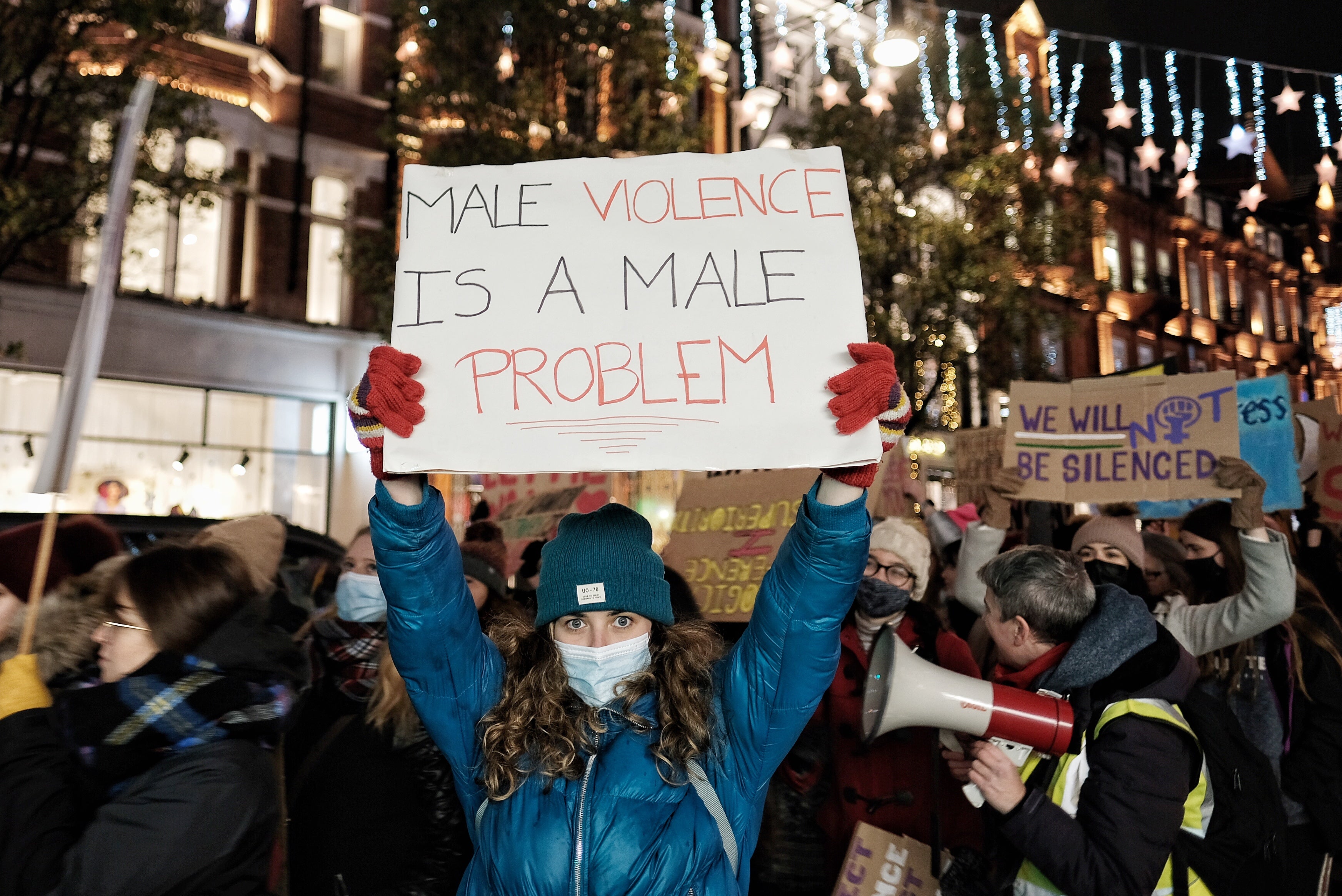Gender-based violence isn’t just a women’s problem – men have a responsibility to tackle this injustice
Reducing gender-based violence to a ‘women’s issue’ stifles progress. For too long, the framing of these issues has given men an excuse not to pay attention


This Human Rights Day (10 December), we should remember the global “shadow pandemic” of gender-based violence; a human rights atrocity that continues to go unchallenged. I call on all men, particularly those in positions of power, to do more to challenge and tackle this injustice.
I believe that gender inequality is the greatest human rights challenge of our time. Progress has been made, but there is still huge work to be done. For example, according to UN Women only 26 per cent of seats in national parliaments worldwide are held by women, and just 28 per cent of managerial positions. Most shockingly of all, nearly one in three women have experienced gender-based violence in their lifetime.
Covid-19 has only made this worse. In the last 12 months alone, UN Women estimates that 245 million women globally have been subjected to sexual or physical violence by an intimate partner.
While these shocking figures highlight the scale of this crisis, we must remember that behind every number is a human being; a woman with her dignity violated and her faith in humanity irreparably scarred.
I am a feminist. That is, I believe that all humans should have the same rights, opportunities and freedoms. As men, especially men in positions of power, it is time we realise the severity of this human rights crisis – and take responsibility for tackling it.
As UN secretary-general, I tried to do my part in standing up for equality. Establishing UN Women and launching the Unite initiative during my tenure helped put women’s rights on the agenda, as did the gendered aspects of the Sustainable Development Goals. But, in the end, accomplishing real change comes down to the political will of our leaders, and this is in woefully low supply.
My own humble contribution to advancing women’s rights would not have been possible without brave and talented women inspiring me and working alongside me. People like Mary Robinson, who worked for me as the UN special envoy on climate change, and who is now my boss as the chair of The Elders.
As a child growing up in a patriarchal Korean society, I witnessed many strong and talented women, my mother included, exerting a profound influence within the home. However, the power of these women was, and is, not recognised or translated into political, social, or economic power in society.
This is not only a Korean phenomenon but something I have observed all over the world – from the lack of women’s political participation to violence against women and girls, or even femicide.
The root problem is the sense of male entitlement that begins at an early age, whether it is favouring the boy child over the girl or other norms that render women inferior to men. This expression of power and privilege, whether subtle or explicit, amplifies throughout our lives and can eventually lead to one of its cruellest expressions: violence.
Reducing gender-based violence to a “women’s issue” stifles progress. For too long, the framing of these issues has given men an excuse not to pay attention. I believe men’s violence against women is first and foremost a men’s issue, for which women pay a terrible price.
Political leaders and decision-makers are uniquely positioned to counter misogyny and gender inequality by speaking out against and, more importantly, acting on this terrible injustice.
To keep up to speed with all the latest opinions and comment sign up to our free weekly Voices newsletter by clicking here
This is an issue that needs to be a priority not only for policymakers in development and education ministries, but at the very highest levels of political power in nation states and multilateral institutions.
As incoming presidents of the G7 and G20, Germany and Indonesia have a particular opportunity to drive progress on gender equality within the Sustainable Development Goals throughout 2022. I challenge the leaders of these nations, and indeed all G7 and G20 leaders, to summon the courage and act against all gender-based discrimination and violence. Brandish your feminist credentials; put women’s rights at the top of the agenda and consign this shadow pandemic to history.
Ban Ki-moon is a former UN secretary-general and deputy chair of The Elders, an independent group of global leaders working together for peace, justice and human rights

Join our commenting forum
Join thought-provoking conversations, follow other Independent readers and see their replies